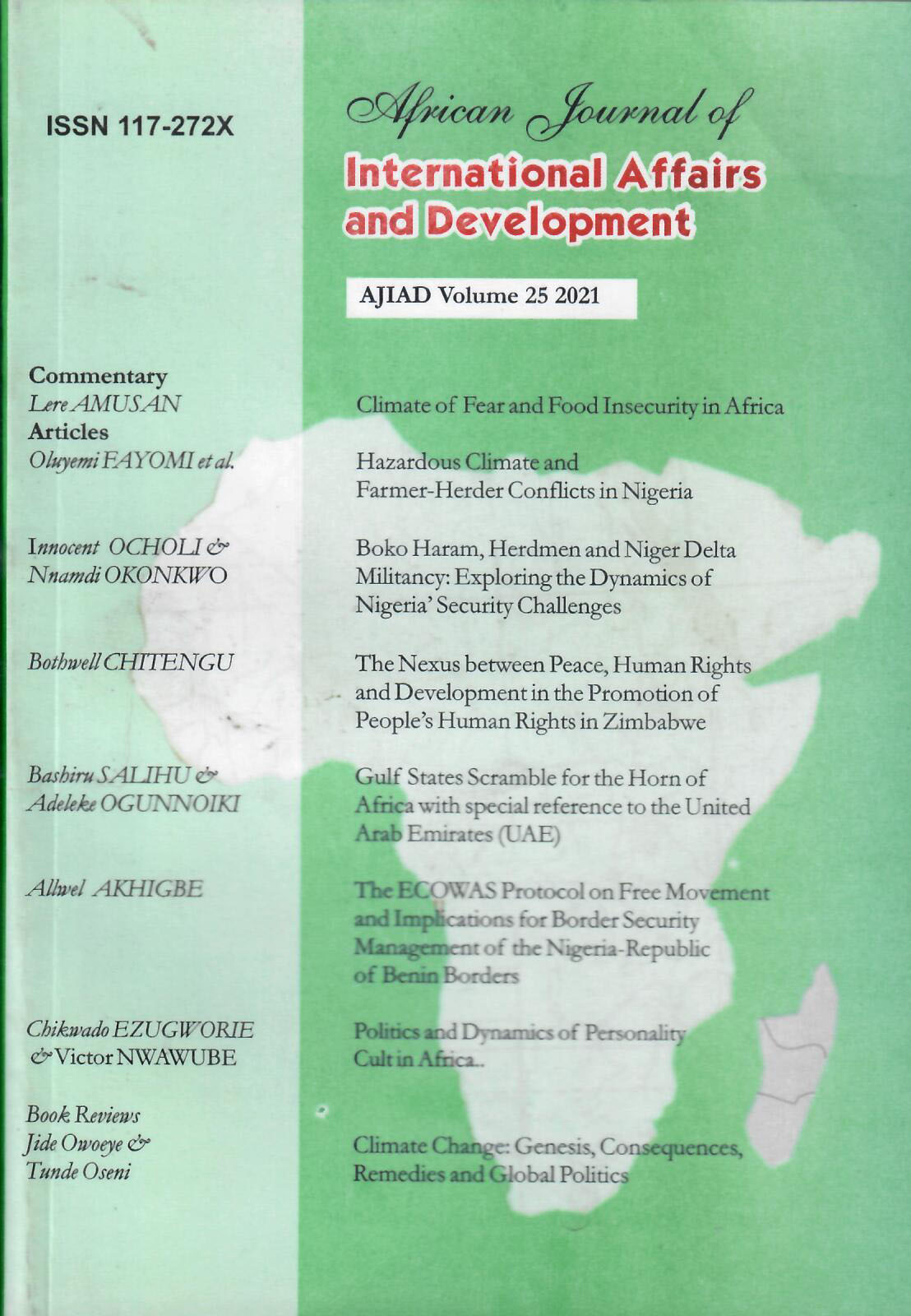Gulf States Scramble for the Horn of Africa: A Case Study of the United Arab Emirates (UAE).
Gulf States Scramble for the Horn of Africa
Keywords:
Horn of Africa, Gulf States, UAE, Military Base, PortAbstract
The Horn of Africa, so named for its hornlike shape when viewed on a map or from outer space, is a geostrategic region on
the African continent owing to its proximity to the shipping lane sea-borne goods and oil, worth millions of dollars from the
Persian Gulf, pass through on a daily basis from the Gulf of Aden, through the chokepoint Bab el-Mandeb, to the Red Sea,
and then the Suez Canal which leads to the Mediterranean Sea. Made up of Djibouti, Eritrea, Ethiopia, and Somalia, the Horn
of Africa has become attractive to a number of foreign powers that are jockeying to have a foothold in it. Among these
external powers with competing diplomatic, economic and security interests are the Gulf States in the Arabian Peninsula –
Qatar, Saudi Arabia, and the United Arab Emirates (UAE) which are investing huge capital, and building seaports and military
bases in the geostrategic region. This paper examines Gulf States scramble for the Horn of Africa with a focus on the
protagonist, the UAE. For the study, data were garnered from secondary sources. Theoretically, the Game Theory was
adopted for the study. The paper concludes that the UAE has done remarkably well over the years by investing billions of
dollars in development projects in the region. However, its investment will be at stake, if a divided Somalia distabilises the
region in the nearest future.

